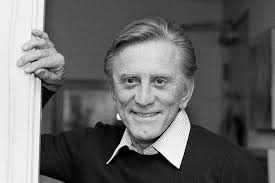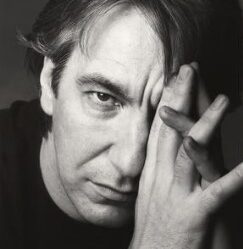
WARNING: This Article May Contain Spoilers
Born: 18th January 1904
Died: 29th November 1986
Born Archibald Leach in Bristol, England, to a tailor’s presser and a seamstress Grant had a somewhat tumultuous early life. His mother taught his song and dance from an early age but as a woman who suffered from depression to struggled to show him love and from the age of nine Grant was raised by his alcoholic father, after he had put his mother into a mental hospital and told his son that she had gone on a “long holiday” then later telling him that she had died. (Grant was in his thirties when his father told him what he had done and found that his mother was still alive). Grant loved the theatre and even trained with a troupe of acrobats and even went on tour with them when he was ten. He won a scholarship to Fairfield Grammar School in Bristol and although he was adept at most subjects he excelled in sports. He spent his evenings and weekends at the Bristol Empire, he spent as much time as he could there to escape his horrible home life. He spent his summers as a tour guide at the military docks in Southampton and applied to be a cabin boy to see the world but was too young.
At the age of 14 he was expelled from Fairfield and he re-joined the acrobatic troupe he had trained with years before a couple of days later. As his father was now living in Southampton while he was in Bristol his father co-signed a three year contract with Pender, leader of the troupe, so that Grant was to be paid and given room and board in exchange for lessons in dance and other talents that would take him up to his eighteenth birthday. Grant travelled with Pender’s group and other vaudeville acts for the next six years meeting many names from cinema including Douglas Fairbanks and Zeppo Marx. When he was 23, Grant was given his first acting role in a Reggie Hammerstein musical and four years later he signed a contract with Paramount Pictures and changed his name to Cary Grant at the suggestion of Paramount’s general manager B. P. Schulberg. His screen debut came a year later playing an Olympic javelin thrower in This is the Night.
Grant’s career continued for the next twenty years until he believed his career was over so he left Hollywood for two years and it was only when Alfred Hitchcock offered him the role of John Robie in To Catch a Thief, alongside Grace Kelly that he came out of ‘retirement’. He had another eleven years of acting before he decided to retire at the age of 62 to concentrate of parenthood.
Lt. Cmdr. Matt T. Sherman is well suited to Cary Grant, he is tall and has an air of authority in everything he does. He is as comfortable with comedy as he is with drama as his performance in Operation Petticoat shows; obviously he the straight man to Tony Curtis but the scenes where he gets flustered and embarrassed around the women is a joy to watch. Now his second film, I had never heard before I started this article but with The Bachelor and the Bobby Soxer (or Bachelor Knight – UK release), and Operation Petticoat, I have come to realise that Grant is a brilliant comedic actor and that I really am enjoying RomComs – but only if they were made before 1990! Grant plays Richard Nugent with such simplicity, there is no straight or funny side to this character one or the other is constantly bubbling under the surface depending on the scene. The storyline is a little weird and probably wouldn’t be remade today but I have to say we’ve all been there – the infatuation with the older man (and if you’re going to be infatuated with anyone why wouldn’t it be Cary Grant!). Next we have Notorious in which Grant plays Devlin. Devlin is a much harder colder character than the other films in this list – he has a job to do and its not to be distracted by a woman, which he obviously is, but I don’t think cold and callous suits Grant he looks better when he smiles which is very little in this film and he seems more at ease when he has a character he has little to play with. Notorious was the second of four films that Grant made with Alfred Hitchcock. And next we have another Hitchcock North by Northwest. As Roger Thornhill Cary cuts quite a dashing figure and when we first meet Thornhill he is your typical busy business man who obviously has a close connection with his mother (which I have noticed seems to be a common thing with the men in quite a few films of the 40s and 50s) but, and as with most of Hitchcock’s films everything is not what it seems, Thornhill’s role just gets stronger as he goes through some harrowing ‘incidents’ making him our hero. Cary Grant adapts to every situation with ease making him not only a wonderful actor as well as one of the hottest properties of the 1940s. Finally we have Night and Day, a biographical film based on the life of Cole Porter, and to be honest there was one line in this film that summed it up for me: “I heard it here (points to ear) but I didn’t feel it here (points to heart)”. Grant portrays composer Cole Porter and, for a biographical film, I learnt little more about the man than I already knew. I think there are two things a biographical film has to have: 1. the lead has to have some resemblance to the person portrayed and 2. a good chronological time line – from what I can see this did neither in fact it was incredibly inaccurate (I have this habit when watching biographical films, especially those that don’t hold my attention, of looking up facts and timelines) and in fact a major part of Porter’s personal life is totally ignored. Don’t get me wrong Grant does a good job with what he has, he showed a new side – he can sing, but with the script he has is weak.
I have to admit I knew very little about Grant’s career other than he was a favourite of Alfred Hitchcock’s (they made four films together – they could have made five but Grant had retired when Hitchcock wanted to offer him the lead in Torn Curtain) so I have a very narrow range to find a film that it my favourite. I guess I would have to say that it is probably a film that isn’t on this list – To Catch a Thief (which I was lucky to watch for an article on Grace Kelly). The two interact beautifully together, a little cat and mouse that leaves the audience wondering who the ‘cat burglar’ is. I understand how the two actors formed a close friendship off screen as it is apparent on screen to and then you throw Hitchcock’s directing into the mix you cannot fail to have a success although not in the eyes of the cinematic awards.
Cary Grant had a very successful thirty odd year film career winning several awards – although the only Oscar he received was an honorary one in 1970. He was one of the first actors to go independent (not signed to a studio) so he would have the chance to veto any roles he did not like. He was considered for the role of James Bond in Dr No but as he was only able to commit to one film Albert R. Broccoli decided to look elsewhere.
Grant had a very colourful love life; he was married five times and had many high profile relationships and affairs, including one with Sophia Loren, but he only had one child – a daughter, Jennifer, who he gave up is acting career to give her stability. Jennifer followed in her parents (her mother was Dyan Cannon) into acting. On the 29th November 1986, Cary Grant took ill whilst performing A Conversation with Cary Grant at the Adler Theatre, in Iowa, he was taken back to his hotel where a doctor deduced that he was having a massive stroke but Grant himself refused to be taken to hospital. He fell into a coma and was transferred to St. Luke’s Hospital where he died two and a half hours later.


